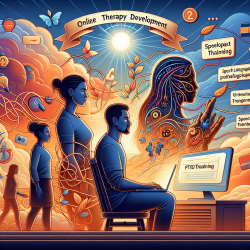Understanding the Impact of Energy Drinks on Youth: A Data-Driven Approach
As practitioners dedicated to improving the health and well-being of children, it is crucial to stay informed about factors that can affect their development. One such factor is the consumption of caffeinated energy drinks (CEDs) among youth and young adults. A recent study titled Consumption of Caffeinated Energy Drinks Among Youth and Young Adults in Canada sheds light on this growing concern.
Key Findings from the Research
The study, conducted in Canada, surveyed 2040 respondents aged 12-24 and revealed some alarming statistics:
- 73.6% of respondents reported having ever consumed energy drinks.
- 15.6% had consumed energy drinks in the past week.
- 16% of ever-consumers reported exceeding the recommended limit of two energy drinks in a day.
These findings highlight the prevalence of energy drink consumption among youth and the potential for excessive intake, which can lead to adverse health effects.
Implications for Practitioners
Understanding the consumption patterns of energy drinks among youth is essential for practitioners working in fields like speech-language pathology and child development. Here are some actionable insights:
- Educate Parents and Children: Use the data to inform parents and children about the risks associated with excessive caffeine consumption, including sleep disturbances, anxiety, and other health issues.
- Incorporate into Assessments: Consider including questions about energy drink consumption in assessments to better understand a child's lifestyle and potential impacts on their health and development.
- Promote Healthy Alternatives: Encourage children to choose healthier options like water or natural fruit juices, especially during activities that require focus and energy.
Encouraging Further Research
While this study provides valuable insights, it also highlights the need for further research. Practitioners can contribute by:
- Conducting Local Surveys: Gather data on energy drink consumption patterns within your community to identify specific trends and needs.
- Collaborating with Researchers: Partner with academic institutions to explore the long-term effects of energy drink consumption on child development.
Conclusion
The consumption of caffeinated energy drinks among youth is a significant concern that requires attention from practitioners. By leveraging data from studies like this, we can make informed decisions to promote healthier lifestyles and better outcomes for children.
To read the original research paper, please follow this link: Consumption of Caffeinated Energy Drinks Among Youth and Young Adults in Canada.










